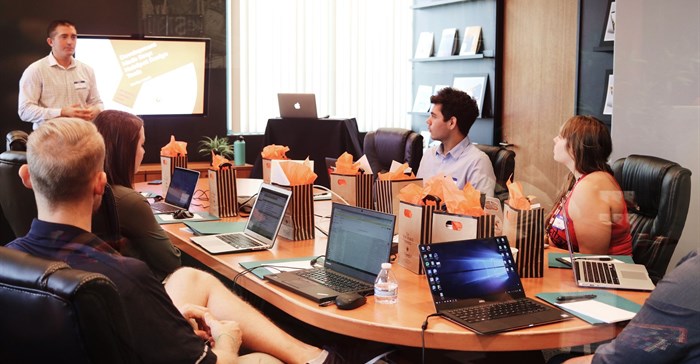
At their best, pitches are not easy and the merits of undertaking them in person are innumerable. No matter how well-written a pitch is, in-person is what spotlights chemistry; the ability to look at body language and gauge how people are really engaging and reacting.
It’s about reading the room as much as it is about what the agency pitching can do, and it just doesn’t translate as effectively online.
Because face-to-face is real, pitches in person are also more likely to get a real-time decision.
What we saw during the pandemic as we continued doing pitches even in instances where the agency hadn’t met the client at all, at some point it became clear that a meeting of the teams would be a critical success factor.
Some marketers and agencies have still not returned full-time to their offices and are working remotely. Our message to them is one of strong encouragement to ditch the virtual pitch and meet in person as much as possible.
When it comes to selecting an agency, there’s no question that doing so face-to-face enables real interaction which is ultimately a huge part of the deciding factor.
Because the pitch process should allow for determining whether there is chemistry between the marketer and the agency, only a Q&A session may be conducted online – but even then, there’s a missed opportunity to really get to know each other; how you respond and talk things through and sense whether or not you’d be a match.
Without relying too heavily on the obvious cliché – online dating – in many instances, what you see on a screen is not what you get in the real world; and I believe it takes two and maybe three in-office interactions to truly feel whether the creative X-factor is there.
We want the client to actually experience the people – not just those who are part of the pitch, but those who also make up the agency’s culture.
The IAS encourages these chemistry sessions at the agency’s premises, which enables the client to see the agency as they really are, in their natural habitat.
We want the client to actually experience the people – not just those who are part of the pitch, but those who also make up the agency’s culture. It’s important to see how and under what circumstances they work and how they interact with each other naturally.
In most cases, an agency is presenting in the client’s environment, which gives them a sense of the marketer’s domain. If both parties are comfortable with the others’ style and conditions of work, chances of starting off well and maintaining a long-term relationship are far greater.
What it boils down to is “clues”; those non-verbal flags or fanfares humans get when they feel something good – or not good – about an organisation, which are impossible to sense virtually.
While there are still pitches happening in the virtual world, I’d actively discourage them unless the client is an international client and even then, a local firm is charged with bridging that gap for the client using their experience and knowledge of the local players.
In a marketer-agency relationship, the question is – often rightly so - “How does this team collaborate creatively, effectively and timeously when they’re not all in the same space?”
Finally, we note that a fair number of clients are reluctant to work with agencies that are fully remote, which again speaks to the idea that there’s something “not real” about a team you can’t interact with in person.
In a marketer-agency relationship, the question is – often rightly so - “How does this team collaborate creatively, effectively and timeously when they’re not all in the same space?”
Marketers who are working remotely understand the time constraints and difficulties in getting things done rapidly, and bear this in mind when dealing with an agency that would need to contact, discuss and deliver the goods with speed.
Ultimately, the marketing jury is in: With a decision-making process as important as retaining a new agency, marketers are opting for full-time, in-studio agencies – and face-to-face meetings.
